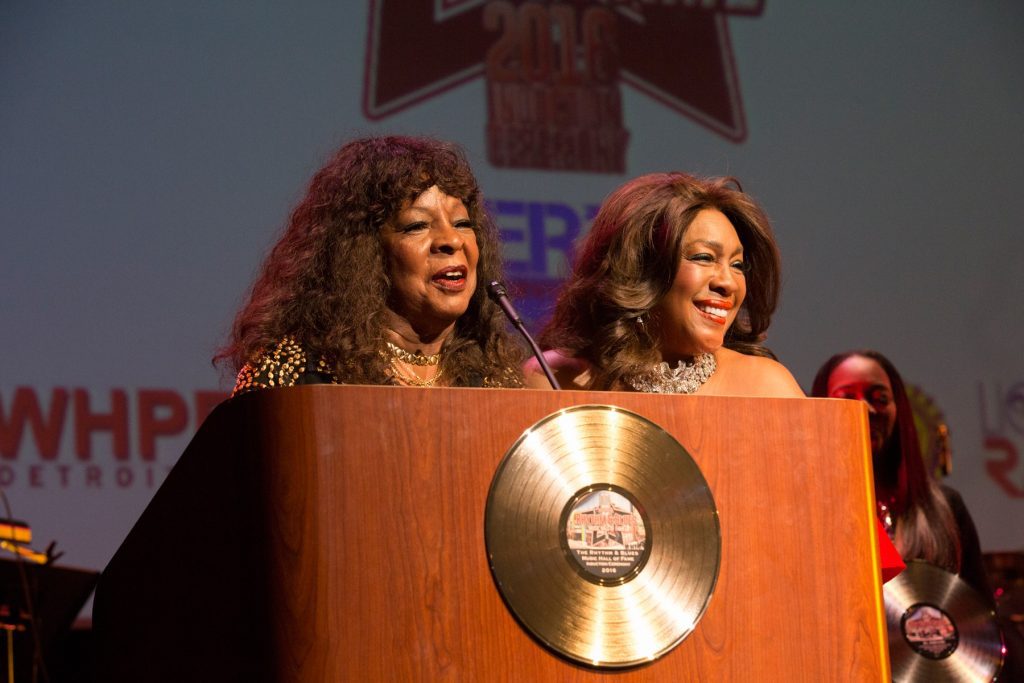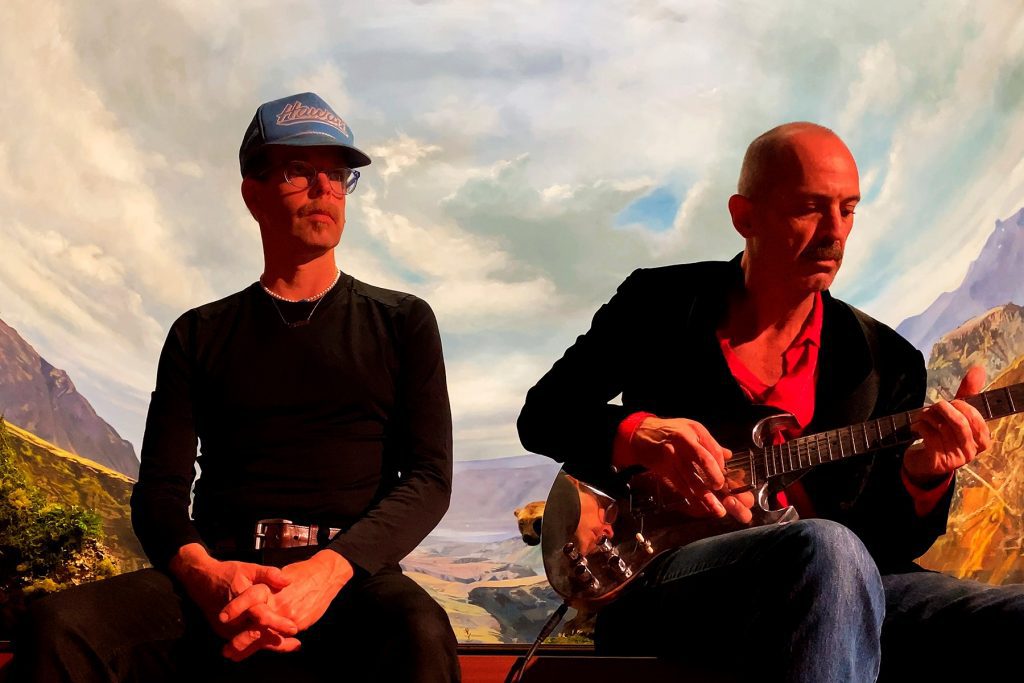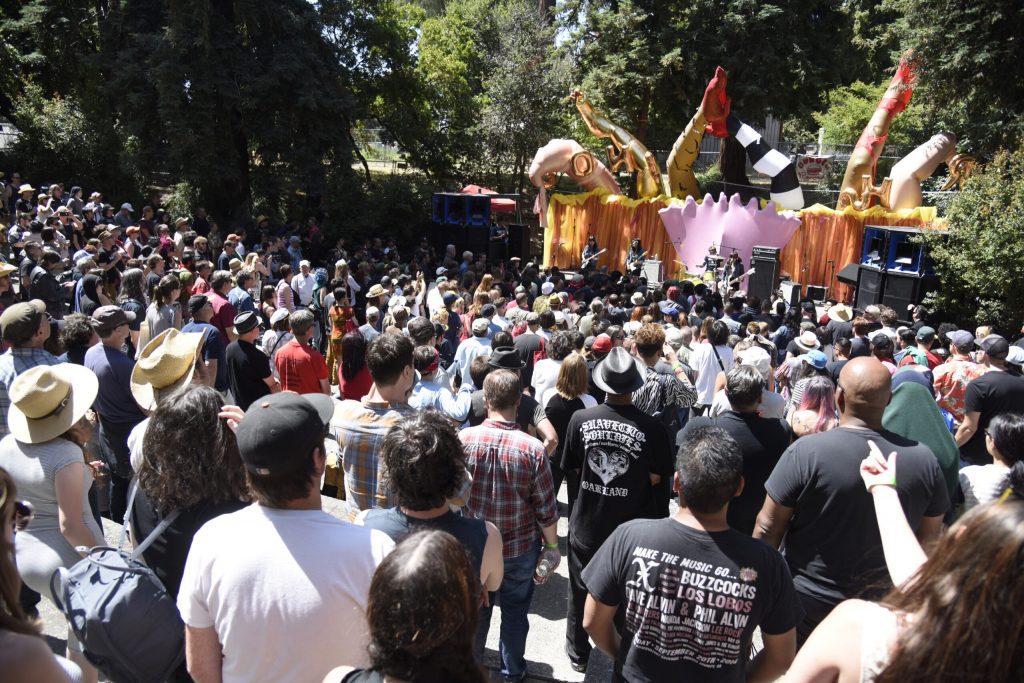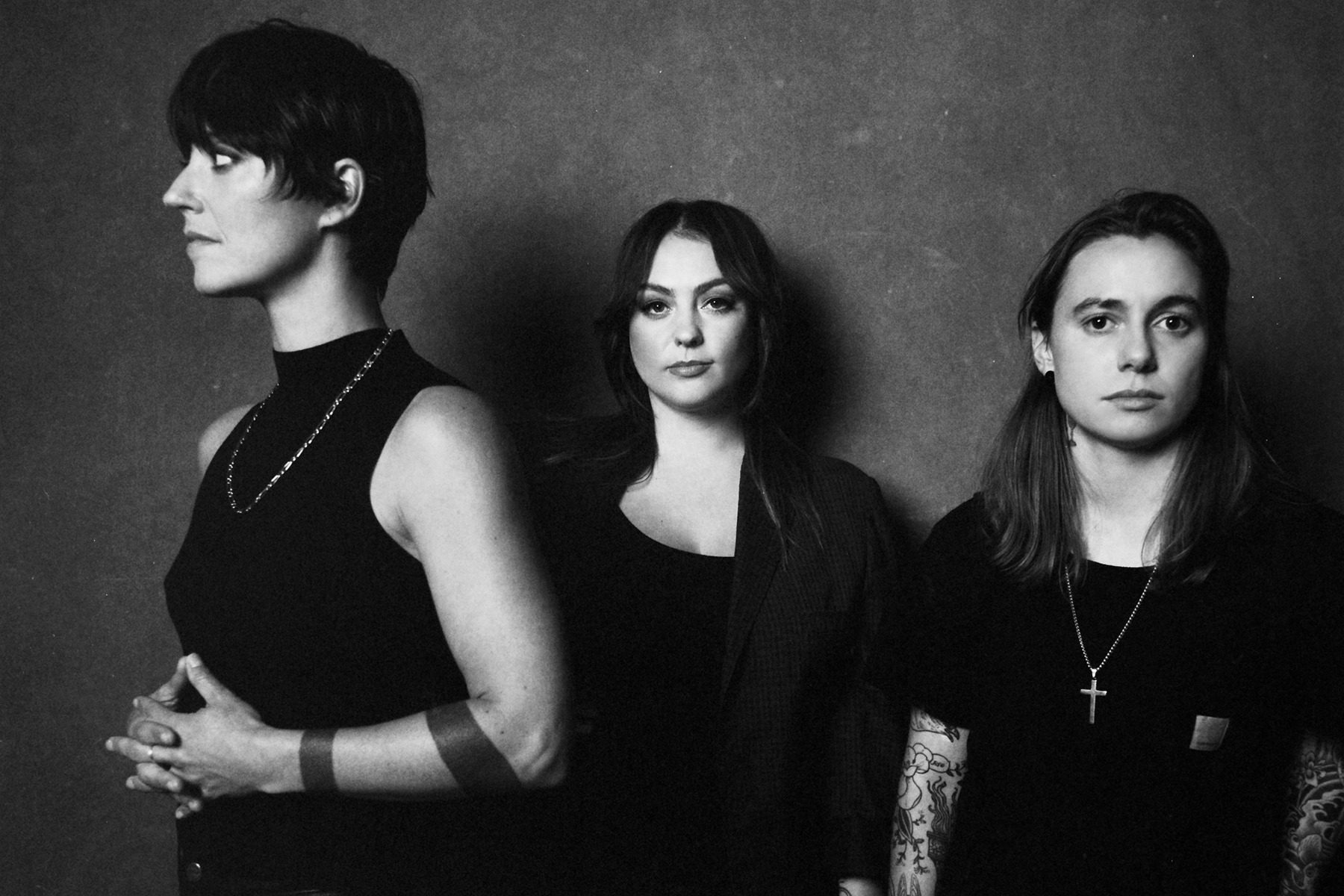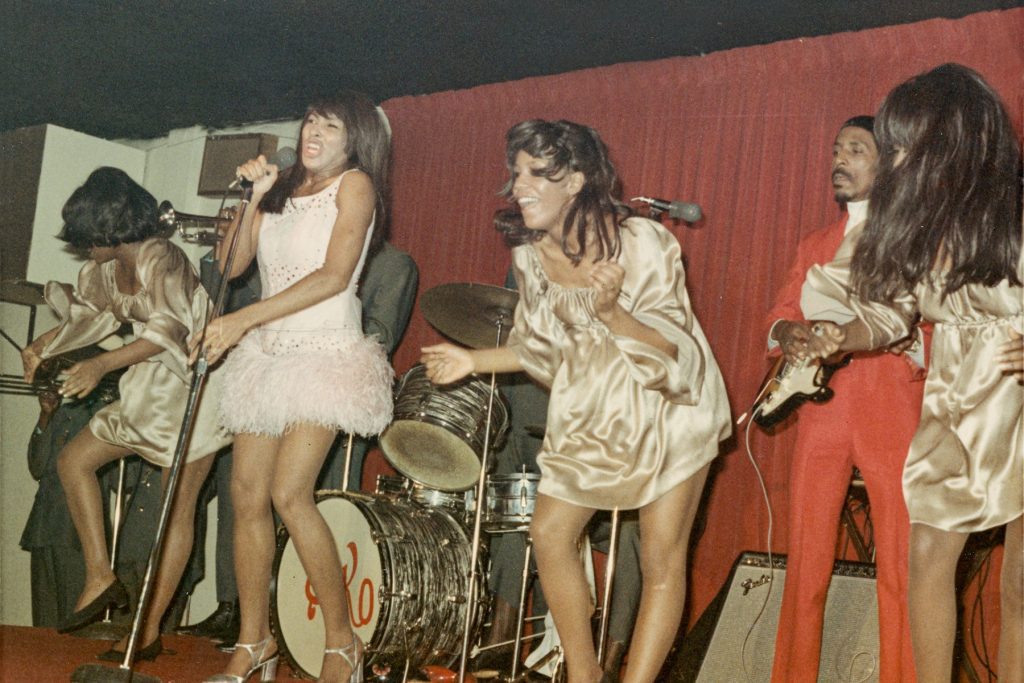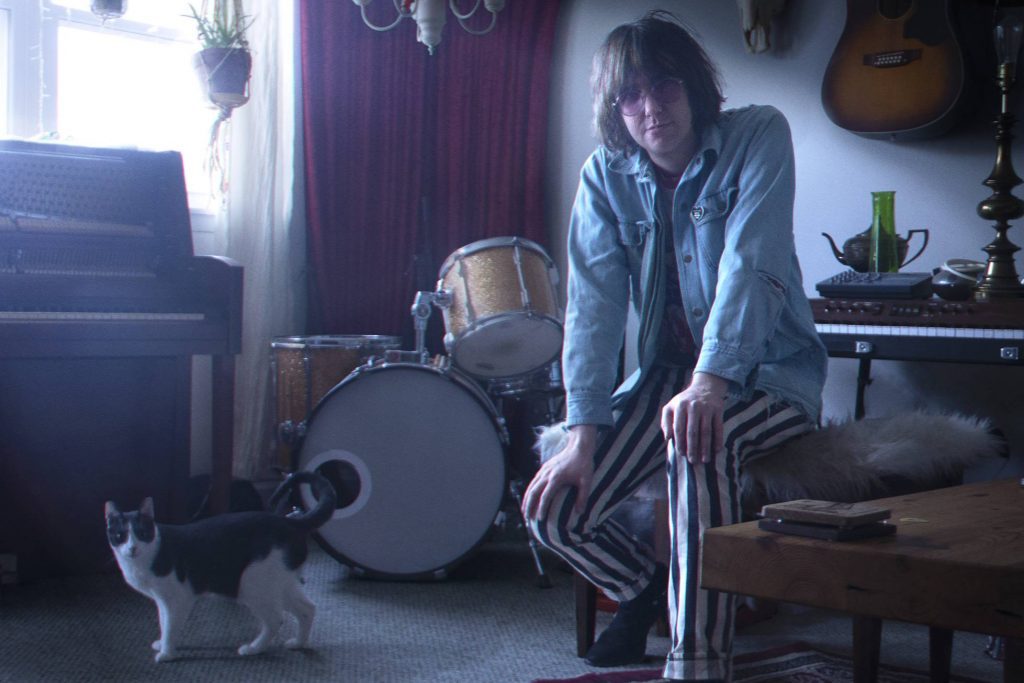
Aaron Lee Tasjan Explores Self-Doubt and Sexuality on Biographical New Album
Last April, Aaron Lee Tasjan was one of the artists who was invited to perform as part of Willie Nelson’s virtual “Come and Toke It” livestream, a 4-hour-20-minute musical celebration infused with a healthy amount of THC. As part of the appearance, the East Nashville singer-songwriter got to meet and chat with his hero Nelson and then play a few songs. It should have been a triumphant occasion, but at least one unhappy viewer threatened to ruin the experience for Tasjan.
“This lady, apparently her cat had gotten really out of sorts when my guitar playing started happening and her cat was running around the room, screaming and upset,” Tasjan recalls during a Zoom conversation with IndieLand. “She had tagged all the people who were involved with the show in her tweets. I got so mad that I walked out of my house into the front yard and threw my guitar in the trash can.”
At that early point in the pandemic, Tasjan hadn’t quite accepted that performances were mostly going to be that way for a while. Once he had a second to cool down, he sheepishly went back outside and retrieved his instrument from the bin. “I’m sure everybody’s had at least one moment like that during this thing,” he says.
blogherads.adq.push(function () {
blogherads
.defineSlot( ‘medrec’, ‘gpt-dsk-tab-article-inbody1-uid0’ )
.setTargeting( ‘pos’, [“mid-article”,”mid”,”in-article1″,”mid-article1″] )
.setSubAdUnitPath(“music//article//inbody1”)
.addSize([[300,250],[620,350],[2,2],[3,3],[2,4],[4,2]])
;
});
That struggle to trust his instincts and filter out the noise of this overly noisy moment are threads running through Tasjan’s latest album, Tasjan! Tasjan! Tasjan!, released last week. During the album’s creative stages, Tasjan had to reckon with his label New West’s expectations and confront his own doubts about his abilities as a songwriter. He poured those into several new songs, including the rumbling “Don’t Overthink It,” with its Kinks-esque melody, and “Computer of Love,” which sounds a little like Elliott Smith embracing synthesizers. On “Not That Bad,” a fingerpicked acoustic guitar drives Tasjan’s description of erasing his recordings and starting over but not getting the desired feedback. “I sent it to the label/but I never got a call,” Tasjan sings.
“I had to do a lot of soul searching and figure out a good place to be coming from, as far as my perception of myself as an artist and a songwriter,” he says. “I really spent a period of time doubting all of that in a significant way that, honestly, I feel like I was lucky to be working on a record while I was going through that. To be able to say that in a song and then be able to go in and sing it helped me to feel like I still had something to say as an artist and could do it in a way that I would feel proud of.”
Along with this slow renewal of confidence, Tasjan was also writing songs that explored sexuality (particularly his own) and expressions of gender that veered from the norm. The single “Up All Night” takes the kind of lush, melodic backdrop the Traveling Wilburys did so well and marries it to a disco beat, while Tasjan describes his dating experiences in Nashville between tours. “I broke up with my boyfriend, to go out with my girlfriend,” he sings. “Cause love is like, love is like, love is like that.”
“I met a wonderful man on [Tinder],” he says. “Our first date ever, we went to the Lipstick Lounge, which is a really cool karaoke bar here in East Nashville, and we sang ‘I Got You Babe’ by Sonny and Cher. Then life got back to reality for me. I was back on tour all the time. It was hard to maintain a relationship really, and it fizzled out like relationships do. Then I met my partner Erica, who I’ve been with now for two and a half years and we live together.”
Tasjan’s fluidity also courses through the standout “Feminine Walk,” which looks to androgyny as a polarizing source of rock & roll power, namechecking David Bowie, Marc Bolan, Mick Jagger, Grace Jones, Joan Jett, and the camped-up drag of the film To Wong Foo, Thanks for Everything! Julie Newmar. (Tasjan has long embraced glammy androgyny and once toured as a member of the New York Dolls; he’ll pay tribute to the band’s late guitarist Sylvain Sylvain in an upcoming tribute livestream.)
“Those are all people I remember being physically attracted to as a young person when I saw them and wondering what that meant,” he says of Bowie, Bolan, et al. “They’re approaching their gender and their existence with a healthy amount of curiosity. And that’s how I’ve always felt, like, what does it mean that I think this or that I feel that? I’m always asking those questions of myself and knowing that there’s not an answer, but still feeling compelled to explore.”
blogherads.adq.push(function () {
blogherads
.defineSlot( ‘medrec’, ‘gpt-dsk-tab-article-inbody2-uid1’ )
.setTargeting( ‘pos’, [“mid-article2″,”mid”,”in-article2″,”mid-article”] )
.setSubAdUnitPath(“music//article//inbody2”)
.addSize([[300,250],[300,251],[620,350],[2,4],[4,2],[3,3]])
;
});
Tasjan! Tasjan! Tasjan! also moves the artist several steps toward the dreamy Britpop, spaced-out glam-rock, and the kitchen-sink approach of Beck that were quieter presences on his more folky, straightforward releases Silver Tears and Karma for Cheap. Album opener “Sunday Women” has the kaleidoscopic jangle of Big Star, while “Up All Night” and “Got What I Wanted” show off Tasjan’s imaginative approach to the guitar, his effects-laden solos turning it into something that feels synthetic and alien.
“It sounds like something almost that doesn’t exist,” he says. “That’s what I wanted to do: create a sound where someone would be like, ‘I wonder what that instrument is.’” It’s more of an Annie Clarke or Radiohead way of looking at the instrument, because, as Tasjan notes, there are plenty of killer players still firmly rooted in rock.
“You can look at Jason Isbell and the 400 Unit and say, ‘Man, those guys are doing everything right with classic rock guitar.’ I don’t think that I need to add anything to that conversation, because they are nailing it,” he says.
Meanwhile, the conversations outside and online continue to rage, with everyone feeling free to offer a Twitter take about Tasjan’s guitar sounds or his politics. He’s tried to be thoughtful and upbeat as he engages with them, but he’s learning when it’s time to back away, for the sake of his own self-confidence.
“I’ve tried my hardest to sort of be like the Diet Sprite of Twitter and just be as positive as I can in hopefully ways that don’t feel disingenuous,” Tasjan says. “But I have to be honest with you, I don’t really feel that way inside all the time. A lot of times, I’m doing that to try and pull myself out of the way that I am feeling.”
if(typeof(jQuery)==”function”){(function($){$.fn.fitVids=function(){}})(jQuery)};
pmc_jwplayer(‘jwplayer_c132tQIF_yTTJs9q5_div’).setup(
{“vloc”:”auto”,”floating”:true,”playlist”:”https:////content.jwplatform.com//feeds//c132tQIF.json”,”ph”:2}
);
blogherads.adq.push(function () {
blogherads
.defineSlot( ‘medrec’, ‘gpt-dsk-tab-inbodyX-uid2’ )
.setTargeting( ‘pos’, [“mid”,”mid-articleX”,”in-articleX”,”mid-article”] )
.setSubAdUnitPath(“music//article//inbodyX”)
.addSize([[300,250],[300,251],[3,3],[620,350]])
.setLazyLoadMultiplier(2)
;
});
